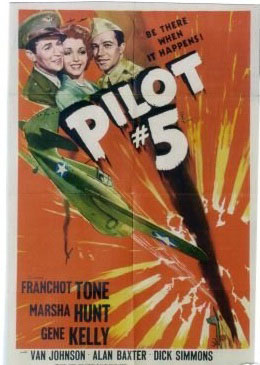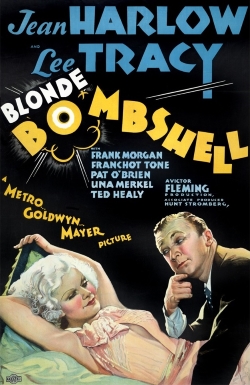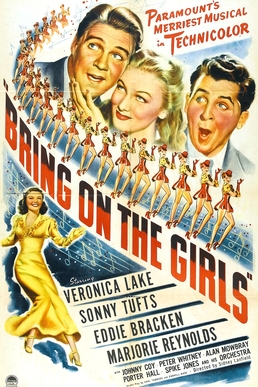
Shadow of a Doubt is a 1943 American psychological thriller film noir directed by Alfred Hitchcock, and starring Teresa Wright and Joseph Cotten. Written by Thornton Wilder, Sally Benson, and Alma Reville, the film was nominated for an Academy Award for Best Story for Gordon McDonell.

Stanislaus Pascal Franchot Tone was an American actor, producer, and director of stage, film and television. He was a leading man in the 1930s and early 1940s, and at the height of his career was known for his gentlemanly sophisticate roles, with supporting roles by the 1950s. His acting crossed many genres including pre-Code romantic leads to noir layered roles and World War I films. He appeared as a guest star in episodes of several golden age television series, including The Twilight Zone and The Alfred Hitchcock Hour while continuing to act and produce in the theater and movies throughout the 1960s.

Dangerous is a 1935 American drama film directed by Alfred E. Green and starring Bette Davis in her first Oscar-winning role. The screenplay by Laird Doyle is based on his story Hard Luck Dame.

Jane Powell was an American actress, singer, and dancer who first appeared in Metro-Goldwyn-Mayer musicals in the 1940s and 50s. With her soprano voice and girl-next-door image, Powell appeared in films, television and on the stage, performing in the musicals A Date with Judy (1948), Royal Wedding (1951), Seven Brides for Seven Brothers (1954), and Hit the Deck (1955).

William Thomson Hay was an English comedian who wrote and acted in a schoolmaster sketch that later transferred to the screen, where he also played other authority figures with comic failings. His film Oh, Mr. Porter! (1937), made by Gainsborough Pictures, is often cited as the supreme British-produced film-comedy, and in 1938 he was the third highest-grossing star in the UK. Many comedians have acknowledged him as a major influence. Hay was also a keen amateur astronomer.

Matt Moore was an Irish-born American actor and director. He appeared in at least 221 motion pictures from 1912 to 1958.

Ella Wallace Raines was an American film and television actress active from the early 1940s through the mid-1950s. Described as "sultry" and "mysterious", the green-eyed star appeared frequently in crime pictures and film noir, but also in drama, comedy, Westerns, thrillers, and romance.
George Thomas Moore Marriott was an English character actor best remembered for the series of films he made with Will Hay. His first appearance with Hay was in the film Dandy Dick (1935), but he was a significant supporting performer in Hay's films from 1936 to 1940, and while he starred with Hay during this period he played a character called "Harbottle" that was based on a character Marriott usually played. His character Harbottle was originally created by Hay when he used the character in his "The fourth form at St. Michael's" sketches in the 1920s.

Pilot #5 is a 1943 black-and-white World War II propaganda film from Metro-Goldwyn-Mayer, produced by B. P. Fineman, directed by George Sidney, that stars Franchot Tone, Marsha Hunt, Gene Kelly, and Van Johnson. Pilot #5 marked Gene Kelly's dramatic film debut.

Bombshell is a 1933 American pre-Code romantic screwball comedy film directed by Victor Fleming and starring Jean Harlow, Lee Tracy, Frank Morgan, C. Aubrey Smith, Mary Forbes and Franchot Tone. It is based on the unproduced play of the same name by Caroline Francke and Mack Crane, and was adapted for the screen by John Lee Mahin and Jules Furthman.

Star Spangled Rhythm is a 1942 American all-star cast musical film made by Paramount Pictures during World War II as a morale booster. Many of the Hollywood studios produced such films during the war, generally musicals, frequently with flimsy storylines, and with the specific intent of entertaining the troops overseas and civilians back home and to encourage fundraising – as well as to show the studios' patriotism. This film was also the first released by Paramount to be shown for 8 weeks.

The Bride Wore Red is a 1937 American romantic comedy drama film directed by Dorothy Arzner, and starring Joan Crawford, Franchot Tone, Robert Young and Billie Burke. It was based on the unproduced play The Bride from Trieste by Ferenc Molnár. In this "rags to riches" tale, Crawford plays a cabaret singer who poses as an aristocrat. This film is the last of the seven films that Crawford and co-star Franchot Tone, then her husband, made together.

Gentlemen Are Born is a 1934 American drama film directed by Alfred E. Green and starring Franchot Tone, Jean Muir and Margaret Lindsay. The film's pre-release title was Just Out of College. A news item in Daily Variety notes that Warner Bros. was sued for $250,000 by Ronald Wagoner and James F. Wickizer who contended that the film was based on their story "Yesterday's Heroes."

She Knew All the Answers is a 1941 American romantic comedy film made by Columbia Pictures, directed by Richard Wallace, and starring by Joan Bennett and Franchot Tone. The film tells a story about a chorus girl who wants to marry a rich playboy, but first has to prove herself to his financial advisor. The screenplay was written by Kenneth Earl, Curtis Kenyon, and Harry Segall, adapted from a short story written by Jane Allen entitled "A Girl's Best Friend Is Wall Street," published in 1938 in Cosmopolitan Magazine.

Edwin Forrest Taylor was an American character actor whose artistic career spanned six different decades, from silents through talkies to the advent of color films.

Man-Proof is a 1938 American romantic comedy film directed by Richard Thorpe. The film is based on the 1937 novel The Four Marys written by Fannie Heaslip Lea.

Rosalie is a 1937 American musical film directed by W.S. Van Dyke and starring Eleanor Powell, Nelson Eddy and Frank Morgan. An adaptation of the 1928 stage musical of the same name, the film was released in December 1937. The film follows the story of the musical, but replaces most of the Broadway score with new songs by Cole Porter. The story involves the romantic entanglements of a princess in disguise and a West Point cadet.

Mrs. Mike is a 1949 American drama film directed by Louis King and written by DeWitt Bodeen and Alfred Lewis Levitt. The film stars Dick Powell, Evelyn Keyes, J. M. Kerrigan, Angela Clarke, Will Wright and Nan Boardman. The film was released on December 23, 1949, by United Artists.

Bring on the Girls is a 1945 American musical comedy film starring Eddie Bracken, Sonny Tufts and Veronica Lake. It is loosely based on the 1940 French comedy The Man Who Seeks the Truth.

Panama Hattie is a 1942 American film based upon the Broadway musical of the same name. It was produced by Arthur Freed and directed by Norman Z. McLeod.


















